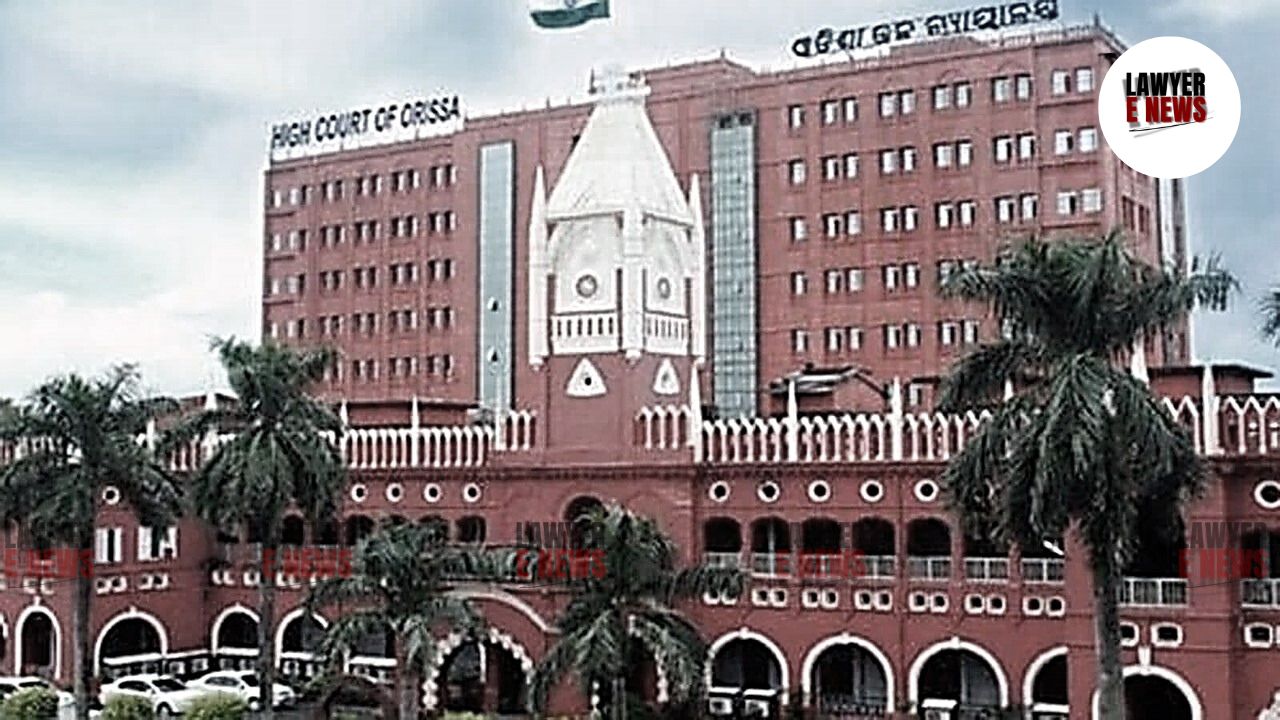-
by Admin
15 February 2026 5:35 AM



High Court quashes interim order by District Consumer Redressal Commission, affirming exclusive jurisdiction of SARFAESI Act over securitization matters. The Orissa High Court has quashed an interim order issued by the District Consumer Redressal Commission, Jharsuguda, which had directed Union Bank of India not to proceed with the auction of secured assets under the SARFAESI Act. The judgment, delivered by a bench comprising Justices D. Dash and V. Narasingh, emphasized that the Consumer Commission lacked jurisdiction over actions under the SARFAESI Act, reaffirming the Act’s overriding provisions.
The petitioner, Chief Manager-cum-Authorized Officer of Union Bank of India, challenged the interim order passed by the District Consumer Redressal Commission, Jharsuguda. The commission had directed the bank not to proceed with the auction of secured assets scheduled under the SARFAESI Act, based on a complaint filed by Rajesh Kumar Agrawal, a guarantor for the credit facilities availed by M/s-Tulshyan Storeware Pvt. Ltd.
M/s-Tulshyan Storeware Pvt. Ltd. Had defaulted on its loan, leading to the classification of the account as a Non-Performing Asset (NPA). The bank issued demand and possession notices under sections 13(2) and 13(4) of the SARFAESI Act. Subsequently, the borrowers, including Rajesh Kumar Agrawal, filed a securitization appeal before the Debts Recovery Tribunal (DRT), Cuttack, which was pending without any interim relief granted.
The High Court stressed that the SARFAESI Act, being a special legislation, overrides other laws in case of conflict, as explicitly stated in sections 34 and 35 of the Act. The court noted, “The District Consumer Commission lacked inherent jurisdiction to entertain the complaint and grant interim relief against the SARFAESI proceedings.”
The bench elaborated on the jurisdictional boundaries set by the SARFAESI Act, emphasizing that actions under the Act cannot be challenged before Consumer Commissions. Justice Narasingh remarked, “The expression ‘other authority’ in section 34 of the SARFAESI Act encompasses the ‘Consumer Commissions,’ thereby barring them from interfering with SARFAESI proceedings.”
The court also cited several Supreme Court judgments underscoring the need for judicial restraint in interfering with SARFAESI proceedings. The judgment highlighted the principles laid out in cases like United Bank of India v. Satyawati Tandon and Indian Bank v. Blue Jaggers Estates Ltd.
The High Court criticized Rajesh Kumar Agrawal for suppressing the fact of the pending securitization application before the DRT while seeking an interim order from the Consumer Commission. This conduct was deemed misleading and intended to serve “mischievous ends.”
Justice Narasingh observed, “It is a matter of serious concern that despite repeated pronouncements by the Supreme Court, the high courts and other authorities continue to entertain matters that fall squarely within the jurisdiction of the DRT under the SARFAESI Act, leading to unnecessary litigation and delay in the recovery process.”
The Orissa High Court’s decision to quash the proceedings before the District Consumer Redressal Commission, Jharsuguda, reinforces the exclusive jurisdiction of the SARFAESI Act over matters of securitization and asset recovery. By imposing a cost of Rs. 1,00,000 on Rajesh Kumar Agrawal for suppression of material facts, the court has sent a strong message about the consequences of judicial overreach and misrepresentation. This landmark ruling is expected to streamline the enforcement of security interests and minimize frivolous litigation, thereby bolstering the financial sector’s confidence in the legal framework governing asset recovery.
Date of Decision: July 01, 2024
